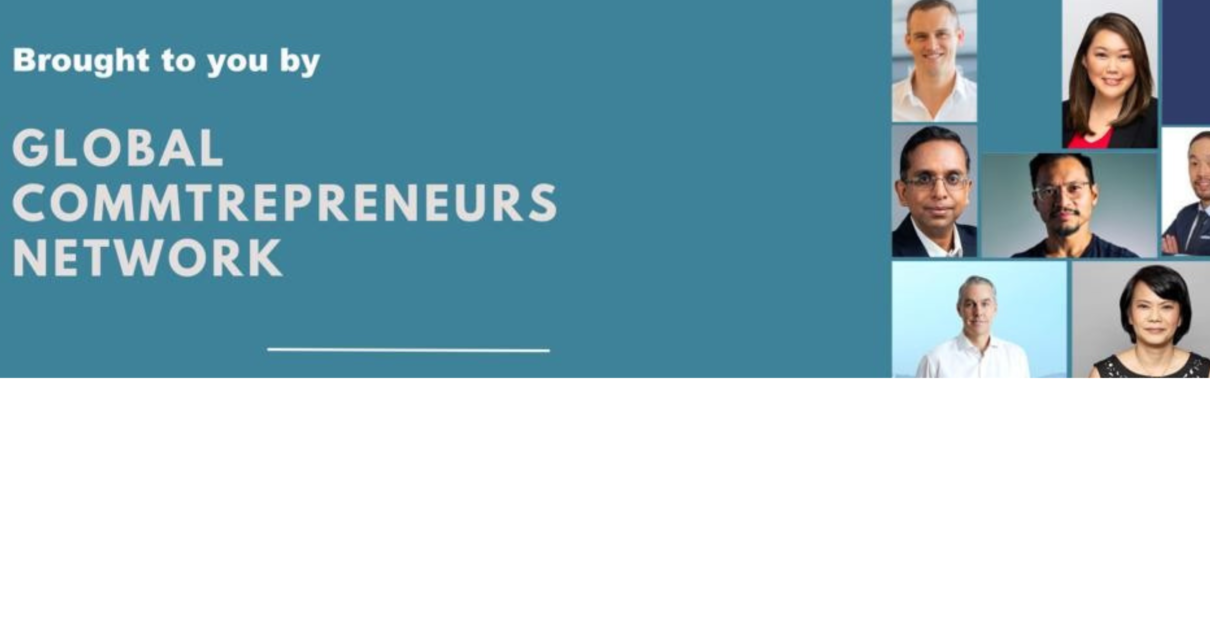First published on: https://www.linkedin.com/pulse/do-overs-communications-challenges-ceos-need-nail-2024-pantin-adf6c%3FtrackingId=jw2vgDe%252BRn%252B5UJjQKna0Yg%253D%253D/?trackingId=jw2vgDe%2BRn%2B5UJjQKna0Yg%3D%3D
I am delighted to co-author a timely article on the need for CEOs to revisit their approach in 2024 or face an existential crisis. Read on and share your comments.
“There are no second chances in life, except to feel remorse.”– Carlos Ruiz Zafón, Spanish novelist.
This proved to be an exception for at least one CEO in 2023 – Sam Altman.
The CEO of the most famous AI enterprise OpenAI got a second chance to keep his job in November, after being ousted by his board, who cited as the official reason that Sam “was not consistently candid” in his communications with them. A dramatic turn of events saw him not just reinstated as CEO, but ousting the board members who fired him – and being named as Time’s CEO of the Year.
It appears that a lack of transparency in communications was at least one element of the friction. And while this may have been a lucky escape for one CEO, most corporate leaders can’t be complacent.
The perch of a CEO has become more tenuous than ever. According to Equilar, between 2013 and 2022, CEOs of S&P 500 companies saw their median tenures drop 20% to 4.8 years from six years. At the same time, companies are more entrenched than ever as the most trusted institutions, according to the 2023 Edelman Trust Barometer.
Which means that CEOs walk a tightrope of maintaining that trust from their employees and other stakeholders, and that decisions in critical areas – transparency, technology, ESG and DEI, and crisis readiness – must be sure-footed in execution and communication.
Confident and assertive communications is one of the values espoused by the Global Commtrepreneurs Network, a pioneering community that brings together a group of individual, independent consultancies from around the world. What follows are snippets of advice from founding members of the group to CEOs and their communications teams, as they prepare their communications agendas for 2024. The network brings together communications practitioners with decades of experience dealing with high-value communications challenges.
Like Glass
Going back to transparency in CEO communications — “When your stakeholders understand what it is you’re trying to achieve and how you’re going to go about building it, it becomes all that much easier to win buy in and trust for your leadership,” says Darren Boey of UnMute.
While it’s still important to distinguish between what can and should be shared, the age of digital communications where information moves at the speed of X leaves little room to hide and obfuscate. “Stakeholders crave timely and forthright communication. CEOs must understand that withholding information during crucial moments only breeds uncertainty and anxiety. To maintain authenticity, leaders must be in touch with reality, consistently aligning their communication strategies with the genuine concerns of their audiences,” Intraskope’s Aniisu K Verghese says.
“I like what one of my PR colleagues used to say, ‘First do no harm’,’ when considering communications,” says Christina Pantin, of Toot, noting that private companies who are not subject to the disclosure requirements of listed ones sometimes struggle with what to say and keep under wraps.
Tech, it is a-changin’
“Every company is a technology company,” – Peter Sondergaard, Gartner SVP of Research
When he made this now oft-repeated declaration at the Gartner Symposium, it was 2013. A decade later, it’s truer than ever, with digitisation hastened by the three years of the pandemic.
And now, tech reality isn’t even enough. A CEO and her team must think broadly, to not just ponder the headline-hogging AI, but beyond. Way beyond. “Having a presence in the parallel virtual world is no longer optional but a must to ensure sustainable positioning,” V-Engage’s Karen Khaw says.
Examples of the virtual world include how we have adopted QR codes and virtual meetings at lighting speed, let alone social media and cashless payments with our smart phones.
CEOs also should be aware of how their industry is using AI, even if they are not. “Educate yourself on AI solutions for your industry, and communicate internally and externally your knowledge of those solutions and how your company is going to exploit them,” counsels Darren.
But like everything new, “the pursuit of innovation carries with it inherent reputation risk,” says Stephen Thomas of Tavo Advisory. “CEOs should proactively ask questions of their teams regarding the potential consequences of their innovation process.”
FOMO on DEI, ESG
As much as employers are trusted, companies are also expected to take a stance and communicate on social issues, including Diversity, Equity and Inclusion, and Environmental, Social and Governance.
But a Fear Of Missing Out on being a part of the discussion and actions can lead CEOs astray in hastily articulated positions. Equally dangerous is being silent on issues that matter to employees and the business.
Remote work during Covid helped to make the workplace more inclusive for people with disabilities, family care responsibilities, or who live outside major cities. “Diversity has always been the focus yet inclusion should be where it starts,” Karen says. “Inclusion is the culture that needs to be infused throughout the organisation with transparent ramifications for not doing so.”
Noting that DEI is a subset of the complex landscape of ESG, Steve observes: “Conducting a materiality assessment provides a means by which to create a blueprint for any organisation’s ESG strategy.The challenge for companies everywhere is telling a story about why their plan is what they’ve decided to do, but also what they are NOT doing.”
Crisis – Prep, Prep, Prep
Like death and taxes, every CEO can be sure of being confronted with a crisis, large or small.
“CEOs in 2024 must recognise that reputation and respect are fragile commodities,” says Aniisu. And nothing tests a reputation and respect more than a crisis.
Advises Darren: “Be prepared for the worst! You may never need a crisis management plan, but you’ll be thankful you’ve got one if the proverbial hits the fan.”
The urgency of everyday business often nudges aside the important task of crisis preparedness.”Resist this temptation and push hard within your company to achieve a heightened focus on crisis planning and prevention. Develop a list of risks and assess which are likely to happen. Then plan against them,” Steve says.
As much as they’re dreaded, a crisis can also pay it forward to girding against the next ones. “A CEO would be wise to conduct a postmortem on the crisis just past, and collect learnings with not just leadership but also with the functions such as communications, HR, legal who are part of the crisis response teams,” Christina says.
And, finally…
This band of Commtrepreneurs has worked with all types of CEOs, in all kinds of industries, for all sorts of communications.
Every client is unique, but we think there are some words of advice that cover most bases.
Aniisu
- Have awareness of current issues and challenges faced by stakeholders
- Active listening and invest in digital and be social media savvy
- Take swift action and prioritise purpose over profit
- Ensure relentless and authentic communication
- Lead by example, from personal wealth to involvement in local and global issues
Karen
“2023 was a catch-up year so 2024 will be the year where CEOs will be expected to get it right first time, every time. The consequences of not doing so will be apparent given the connectedness of the world we live in now with social platforms being the main channel of facilitation.”
Darren
“CEOs must invest in communications strategies that convey how their business exists on the cutting edge of the latest advancements. Just as important are the consequences of APPEARING to be falling behind in adoption. The cost of that is just as great. Investors will favor your more advanced (appearing) competitors.”
Steve
“Authenticity comes from being true to your own personality, and some CEOs will naturally be more visible or vocal than others. This is understandable and should be factored into the communications program. However, personality type should not be an excuse for not communicating – in our current era, no CEO can afford to be too quiet or shy about representing the company across a wide spectrum of settings.”
About Global Commtrepreneurs Network
Global Commtrepreneurs Network is a pioneering community that brings together a distinguished group of independent individual consultancies from around the world. This network is a dynamic and collaborative platform that unites the best minds in the field of communications and management. Our member consultancies are helmed by seasoned Commtrepreneurs who possess a profound understanding of growing sustainable business operations gained from decades of experience across global geographies and industries. Our community is dedicated to fostering world class communication standards, industry best practices, and continuous professional advancement.
Founding member consultancies:
- V-Engage, Karen Khaw Karen Khaw
- Toot, Christina Pantin Christina Pantin
- Swagger Communications, Aaron Pan Aaron Pan
- Tavo Advisory, Stephen Thomas Stephen Thomas
- UnMute, Darren Boey Darren Boey
- Perpetual Improvement, Brett Cooper Brett Cooper
- Intraskope, Aniisu K Verghese PhD Aniisu K Verghese Ph.D.
To find out more, contact the team at: [email protected]
#CEO #techinnovation #AI #ESG #communications


